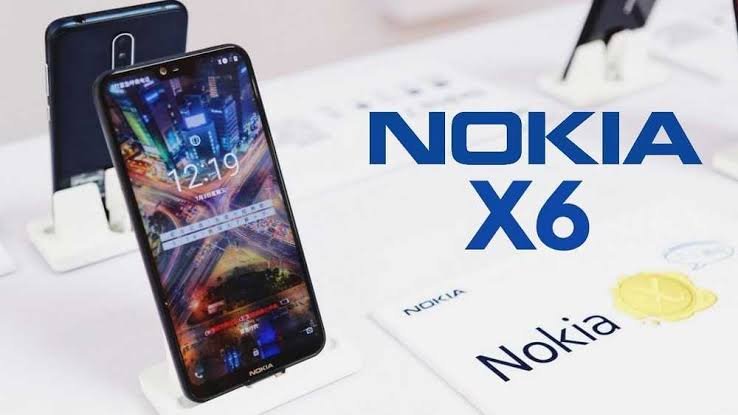Introduction to the Nokia X6
Launched in May 2018, the Nokia X6 marked a significant return for the brand in the competitive smartphone market. It quickly gained attention due to its attractive design and solid specifications, aiming to capture a segment of budget-conscious consumers who do not want to compromise on performance or aesthetics. The Nokia X6 is positioned within the Nokia lineup as a mid-range smartphone, following the company’s strategy of offering reliable devices with contemporary features.

The design of the Nokia X6 is notable for its all-glass body, striking the right balance between elegance and functionality. With a 5.8-inch Full HD+ display that boasts an 86% screen-to-body ratio, the device provides an immersive viewing experience. The modern notch design further enhances its visual appeal, making it a stylish addition to the user’s collection. Available in several color options, including Black, White, and Blue, the Nokia X6 appeals to a broad demographic, catering to different style preferences.
In terms of positioning, the Nokia X6 aims to compete with other mid-range smartphones, notable for balancing quality and affordability. Users can expect a seamless blend of design and performance, with a strong focus on delivering fundamental smartphone capabilities while meeting the expectations of today’s consumers. The smartphone market is flooded with options, but the Nokia X6 stands out for its consistent performance, efficient battery life, and user-friendly interface. This introduction sets the stage for a deeper look into what the Nokia X6 can offer, focusing on its specifications, features, and overall user experience, making it a compelling choice in the mid-range category.
Camera Performance and Quality
The Nokia X6 is equipped with a dual-camera setup on the rear, featuring a 16-megapixel primary sensor and a 5-megapixel depth sensor. This combination allows for impressive photography capabilities, particularly in portrait mode, where the depth sensor enhances the bokeh effect, resulting in striking images with blurred backgrounds. The primary sensor’s f/2.0 aperture contributes to effective low-light performance, making it easier for users to capture clear shots even in dimly lit conditions.
Front-facing photography is supported by a 16-megapixel camera, which delivers high-resolution selfies. The integration of beautification features enhances the user experience, allowing for customized adjustments to skin tone and facial features. The camera app is intuitive, providing easy access to various modes such as HDR, night mode, and even a dedicated beauty mode for users looking to enhance their portraits.
In terms of photo quality, the Nokia X6 performs well across different lighting scenarios. During daylight, the images are vibrant, with accurate colors and excellent detail retention. However, in low-light conditions, while the night mode aids in improving brightness and clarity, some users may notice a slight decrease in sharpness. Nonetheless, the overall performance remains commendable when compared to other devices in its category.
Videography options include 1080p recording at 30fps, offering satisfactory stability and clarity. Users can enjoy features such as time-lapse and slow-motion video capture, which further enhances the versatility of the camera system. Overall, the Nokia X6 presents a reliable camera setup that caters well to the needs of photography enthusiasts, providing a balanced combination of quality and features.
Battery Life and Power Management
The Nokia X6 comes equipped with a robust 3060 mAh battery, designed to meet the demands of modern smartphone users. This capacity is frequently adequate for a full day’s use, ensuring that even those with heavier usage patterns can rely on their device without the need for constant recharging. The battery’s performance tends to vary based on how the device is utilized, but in general, it has shown commendable longevity under standard conditions. Users can expect around 8 to 10 hours of screen time, which is a respectable achievement in this competitive market.
Moreover, the Nokia X6 features quick charging technology capable of delivering 50% charge in approximately 30 minutes, which is particularly beneficial for users on the go. This ability to recharge swiftly alleviates anxieties associated with battery life and allows for greater flexibility throughout the day. The phone’s efficient power management system further optimizes energy use, automatically adjusting background processes and screen brightness in accordance with the user’s activities. This means that during mundane tasks like texting or web browsing, the phone intelligently conserves battery life.
Storage, Memory, and Screen Size Analysis
The Nokia X6 presents users with a selection of internal storage options that cater to different needs. Available variants include 32GB and 64GB configurations, allowing consumers to choose according to their storage requirements. Notably, this device also supports expandable storage through a microSD card, offering an additional layer of flexibility for users who require more space for applications, multimedia files, or extensive libraries of photos and videos. This capability enhances the usability of the device, particularly for those who frequently engage in photography or store large amounts of data.
RAM specifications on the Nokia X6 are vital to its performance. With configurations typically ranging from 3GB to 6GB, users can expect a smooth multitasking experience. The higher RAM option benefits those who regularly use resource-intensive applications or indulge in mobile gaming. Overall, the RAM capabilities ensure that users can operate multiple applications simultaneously without noticeable lag, enhancing the general experience of the device.
The display quality of the Nokia X6 is another critical aspect worth examining. Equipped with a 5.8-inch Full HD+ display, the device boasts a resolution of 2280 x 1080 pixels, providing sharp and vibrant visuals. This screen size strikes an optimal balance between usability and portability, making it well-suited for various activities such as watching videos, playing games, and browsing the web. The high pixel density not only enhances clarity and detail but also contributes to an immersive viewing experience. A brightness level that can adapt to various settings ensures usability in different environments, allowing users to enjoy their media without compromise on quality.
